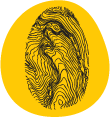
Land use change in Europe: new understanding, better modelling, and roadmapping to a desired future
Symposium organised by:
Marc Metzger, University of Edinburgh, UK.
marc.metzger@ed.ac.uk
Helmut Haberl, Institute of Social Ecology Vienna (SEC), Alpen-Adria Universitaet, Austria.
helmut.haberl@aau.at
Summary
This symposium will discuss challenges for land system science with a focus on: empirical studies that improve insight into land system processes; landscape and land use models that incorporate the multi-scale dynamics of land system change; and studies that combine explorative scenarios and normative visions to support decision-making.
Description
European landscapes are under increasing pressure from major drivers, including climate change adaptation and mitigation, bioenergy demands, globalisation, and a growing importance of non-provisioning ecosystem services. While considerable progress has been made in understanding landscape and land use change, land system science continues to face a number of grand challenges. This symposium will discuss these challenges with a focus on empirical studies, land system modelling and the analysis of future visions of land system change. The symposium will combine results from the EU FP7 project Vision of Land Use Transitions in Europe (VOLANTE; www.volante-project.eu) with other papers to provide a comprehensive overview of European land system science. We specifically welcome abstracts focusing on:
- PROCESSES: Empirical studies that improve insight into land system processes. Contemporary landscapes are contingent outcomes of past and present patterns, processes and decisions. Thus, empirical analysis of past and present land-use decisions and drivers of land-use change has an important role in providing insights into the socio-economic and ecological processes that shape land-use transitions at all spatial scales.
- ASSESSMENT: Landscape and land use models that incorporate the multi-scale dynamics of land system change. Combining the strengths of empirical analysis with multi-scale modelling can lead to new insights into the processes driving land system change. Modelling methods that combine complex systems thinking at a local level with macro-level economic analysis of the land system would incorporate the multi-scale dynamics.
- VISONS: Studies that combine explorative scenarios and normative visions to support decision-making. Land use futures analysis may apply explorative scenarios, normative visions of desired outcomes, or combinations of both. The combined approach would benefit from the broad and in-depth involvement of stakeholders in order to link scientific findings to political and societal decision-making culminating in a set of key choices and consequences.
Impact
A special issue of a journal will be developed based upon the symposium. The symposium will also provide links between major research projects and will develop and expand research networks.
